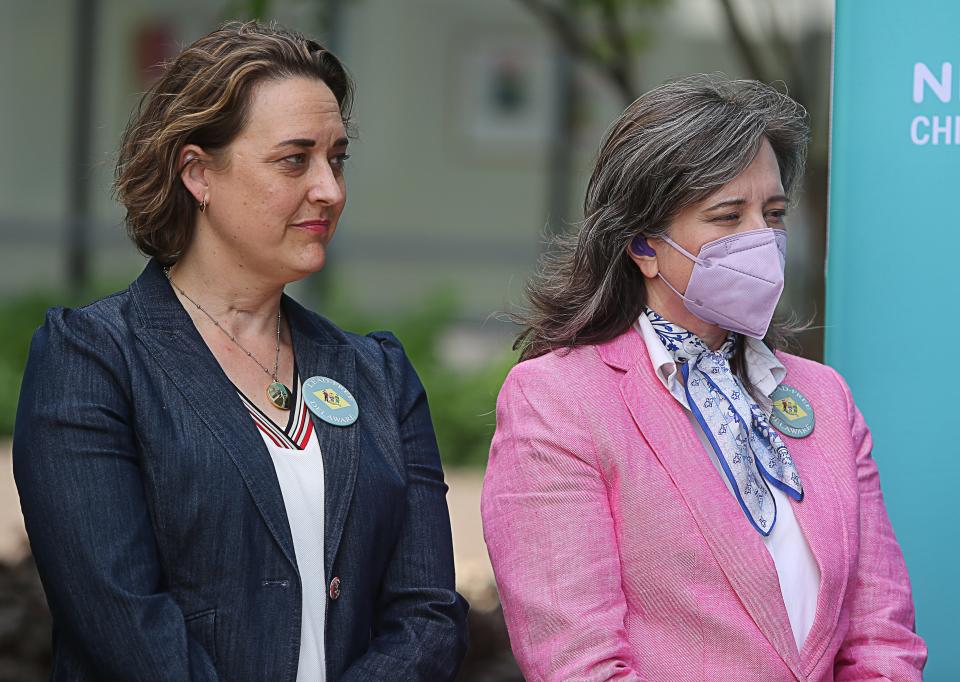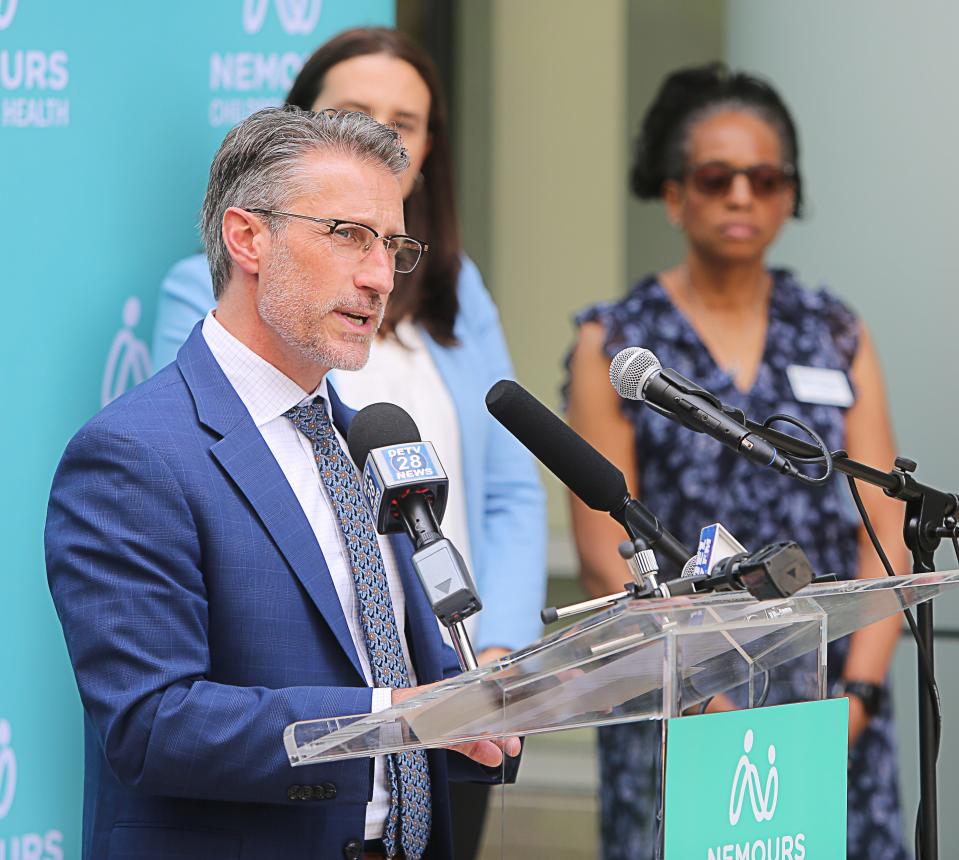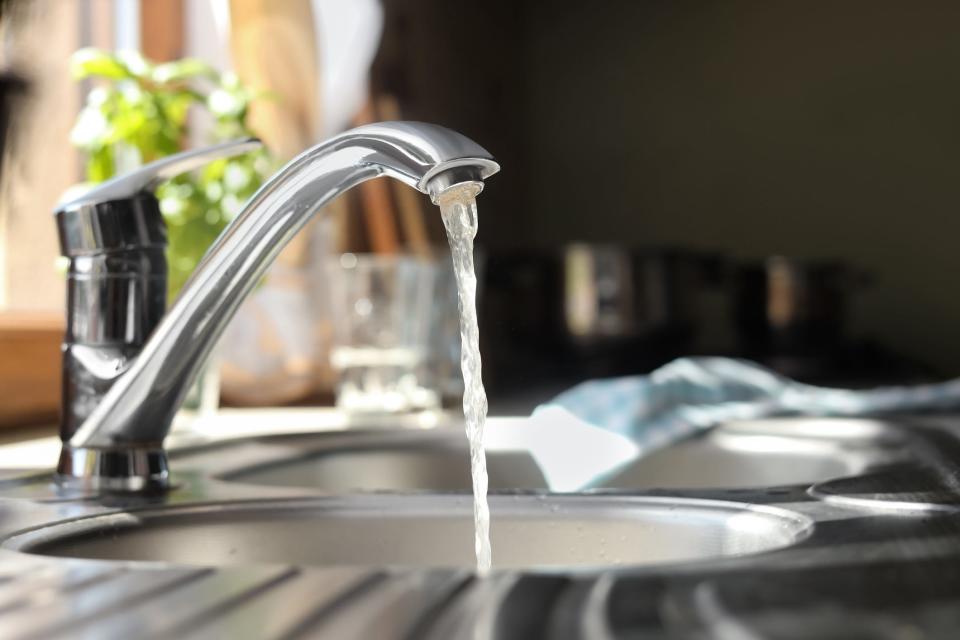Lead-Free Delaware, ACLU call on state to install water filters in schools by Jan. 1
The ACLU and Lead-Free Delaware advocates are calling on the state to install filters at schools across Delaware by Jan. 1.
A report conducted by the ACLU of Delaware in collaboration with Lead-Free advocates suggested that the measures taken by the Delaware Department of Education to resolve issues surrounding lead-tainted water in schools are “insufficient,” prompting the groups to urge the state to introduce “new, safer drinking water standards for schools by Jan. 1, 2024.”
“The American Academy of Pediatrics recommends that drinking fountains in schools not exceed 1 part per billion (ppb), which is much lower than the action level of 7.5 ppb set by the Department of Education,” said Sarah Bucic and Amy Roe of Lead-Free Delaware. “We are calling for a health-based approach to drinking water in schools.”

Delaware established the 7.5 ppb threshold after the U.S. Environmental Protection Agency flagged the state for its mishandled sampling efforts last year.
WATCHDOG REPORTING: How Delaware's handling of lead water testing put thousands of students and staff at risk
The issues, which were first revealed by Delaware Online/The News Journal, prompted the state to hire third-party contractor Batta Environmental Associates to conduct resampling – efforts that concluded earlier this year and found that all 19 public school districts and two charter schools had at least one drinking water sample return lead levels above 7.5 ppb.
Results of 7.5 ppb or higher represent only 4.6% of the total samples taken, according to a Delaware Online/The News Journal analysis. About 70% of the sample results returned levels below the laboratory’s detection limit of 2 ppb.
Before the resampling concluded, state officials had pledged a $3.8 million infusion to install filters throughout district schools and charters, with the promise of a “Filter First” approach. While state Education Secretary Mark Holodick has pledged a Filter First policy, no definitive timetable for the installation of filters has been set.
Department of Education spokesperson Alison May said the state cannot commit to all work being completed by Jan. 1 because each school is at a different point in this process.
BOTCHED TESTING: Delaware officials admit to 'missteps' in not communicating high lead levels in school water supplies
"The department and our local education agency partners continue to prioritize this work through state, minor capital improvement and local funding as well as the facilities assessment efforts required by Senate Bill 270," May said. "The department remains committed to supporting our school districts and charter schools as they strive to ensure safe and clean drinking water in their buildings."
Why some say Delaware’s efforts aren’t enough
Advocates say that the state is only addressing testing points with the “highest lead levels,” which means faucets and fountains that tested below the state’s action level of 7.5 ppb won’t be addressed.
And even though most samples tested below the laboratory’s detection limit of 2 ppb, advocates said that doesn’t mean there aren’t trace amounts of lead in those water sources.
LATEST SAMPLE RESULTS: How Delaware schools are using lead water sample results to install filters
“This means that the testing method could not be used to get an exact measurement of the lead level in the sample,” the joint report from the ACLU and Lead-Free Delaware advocates stated. “While it is heartening to see that these samples are below 2 ppb, they fall into a range that could have health impacts, especially for young students.”

Since the state began its resampling efforts, Lead-Free Delaware advocates have pushed state officials to adopt lead threshold standards of no more than 1 ppb, as recommended by the American Academy of Pediatrics.
The group also took issue earlier this year with a state report that claimed, without data, that drinking water wasn’t the cause for elevated blood lead levels in Delaware children.
RELATED: Delaware claims, without data, that childhood lead exposure not caused by drinking water
The advocates have stressed that the Centers for Disease Control and Prevention, the American Academy of Pediatrics and the World Health Organization all agree there is no safe level of lead in drinking water and that lead contamination is especially dangerous for young children.
Long-term effects of lead exposure include damage to the brain and nervous system, slowed growth and development, and learning and behavior problems, according to the CDC, all of which can occur even at low exposure levels.
LEAD IN WATER: How it gets into drinking water and can harm you
While lead-based paint has been a primary contributor to lead exposure in children, the naturally occurring element can be found throughout a child's environment, including in certain water pipes and spigots, toys and jewelry, and some candies and traditional home remedies, according to the CDC.
Petition for lower threshold to take action
Advocates are petitioning to have the threshold for action to remediate lead contamination from a faucet or water fountain lowered to “no more than 1 ppb.”
“Rather than spot-treating problem areas and intentionally allowing some lead to remain in the water, advocates are urging the (Department of Education) to filter all school drinking water,” a news release stated.

The education department did not comment on the advocates' push for Delaware to lower the action threshold to 1 ppb.
Senate Bill 270, passed last year, requires the state’s education and public health departments to develop a “Standard of Good Repair” that requires annual evaluations of school district facilities to ensure repairs and maintenance keep schools safe for students and staff.
Advocates say the state has until Jan. 1 to develop those standards and so far, they’ve received no indication that the policy will include a “safe threshold for lead levels in drinking water, nor a formal commitment to a ‘Filter First’ policy.”
“We must stop normalizing the poisoning of our children in the very buildings we send them to learn and thrive. Lead in water tends to fluctuate dramatically, which means that a tap testing below 7.5 ppb one minute can dispense lead in the hundreds, and even thousands, ppb the next,” said Dr. Yanna Lambrinidou, co-founder of the Campaign for Lead Free Water, in the news release. “For this reason, a proactive Filter First approach is the only way to prevent chronic and acute exposures to lead in school water, immediately and effectively.”
Got a tip? Contact Amanda Fries at afries@delawareonline.com. Follow her on X at @mandy_fries.
This article originally appeared on Delaware News Journal: Delaware advocates, ACLU want filters for lead in schools by Jan. 1

